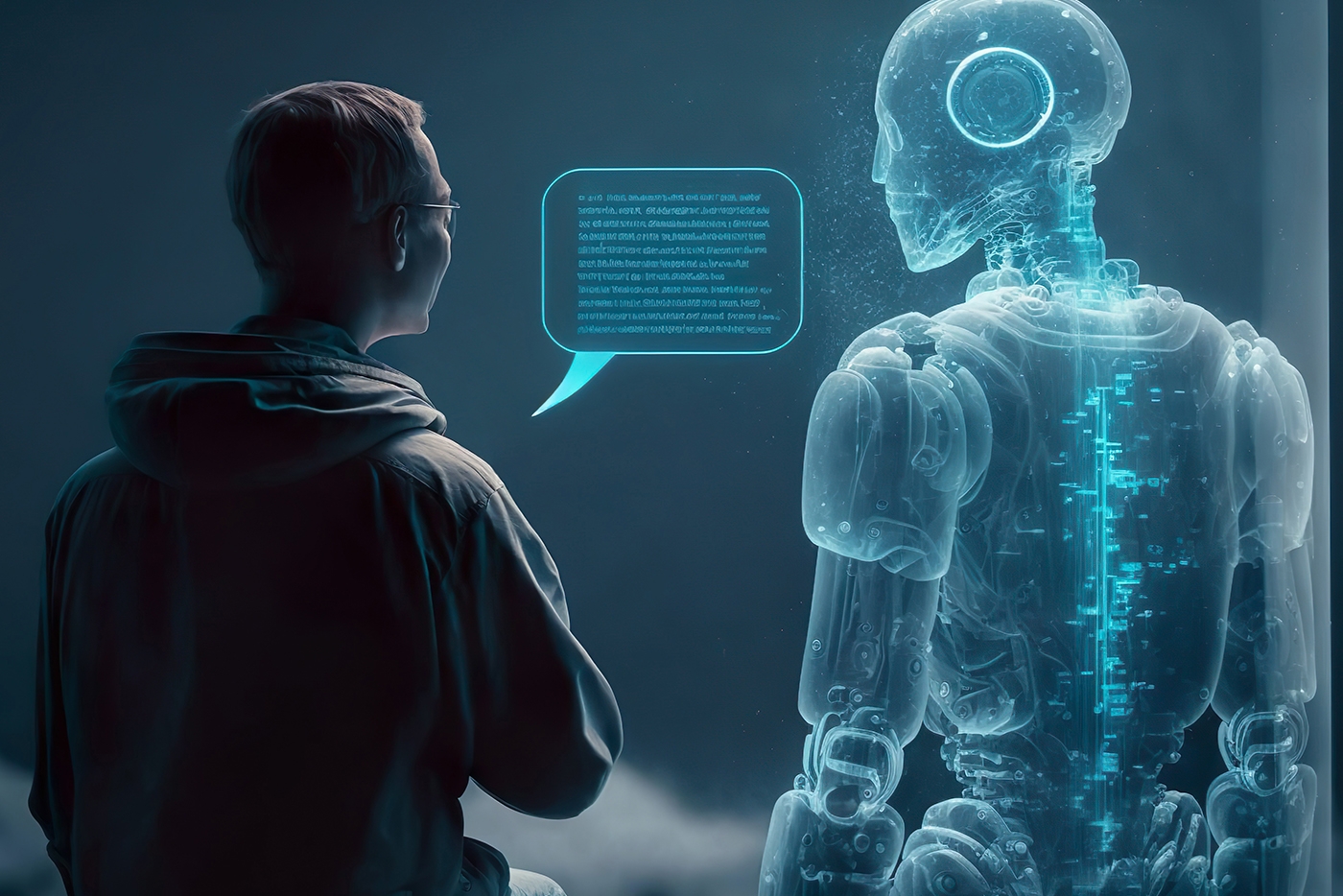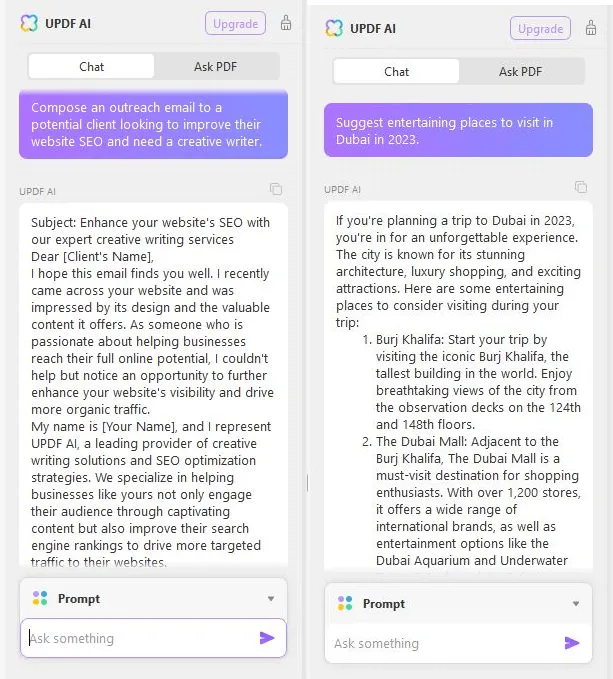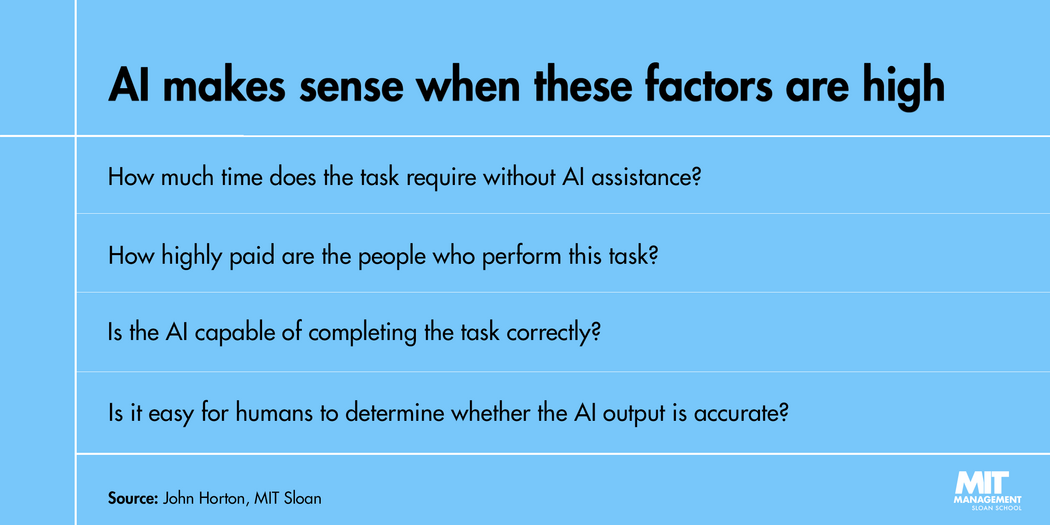You can ask AI questions and get instant answers. AI can help in many areas, from education to daily tasks.
In today’s digital age, AI has become a helpful tool for everyone. You can use AI to ask questions and receive precise answers quickly. Whether you’re curious about a topic or need help with a problem, AI can provide the information you need.
This technology is accessible and easy to use, making it a great resource for learning and problem-solving. AI is designed to understand and respond to your queries in a clear and concise manner. With AI, you can explore new ideas, gain knowledge, and find solutions with ease. Dive in and discover how asking AI questions can benefit you in countless ways.
Introduction To Ai In Information Retrieval
Discover how AI enhances information retrieval by allowing users to ask complex questions and get precise answers. This technology improves search efficiency and user satisfaction.
Rise Of Ai
AI has evolved rapidly in recent years. Early AI systems were limited and simple. Today, AI uses advanced algorithms. These algorithms can understand and interpret data. AI can learn from past experiences. It can improve its performance over time.Impact On Information Access
AI makes it easier to find information. Traditional search engines rely on keywords. AI understands context and meaning. It delivers more accurate results. AI can analyze user behavior. It can personalize search results. This leads to a better user experience. AI also helps in organizing information. It can categorize and tag data automatically. This saves time and effort. AI can handle different types of data. Text, images, and videos are all within its reach. This versatility makes AI a powerful tool in information retrieval. AI’s impact on information access is significant. It changes how we interact with information. It makes our searches faster and more efficient. It enhances our ability to learn and discover new things. “`How Ai Processes Questions
Understanding how AI processes questions can be fascinating. AI uses advanced techniques to understand and respond to questions. These techniques involve Natural Language Processing and Machine Learning Algorithms. Let’s dive deeper into these processes.
Natural Language Processing
Natural Language Processing (NLP) is a core part of AI. NLP helps AI understand and interpret human language. It breaks down sentences into smaller parts. This allows the AI to find the meaning behind the words.
NLP involves several steps:
- Tokenization: Breaking down text into individual words or tokens.
- Part-of-Speech Tagging: Identifying the grammatical parts of each token.
- Named Entity Recognition: Finding and classifying entities in the text.
- Sentiment Analysis: Determining the sentiment behind the text.
These steps help AI process and understand questions effectively.
Machine Learning Algorithms
Machine Learning Algorithms play a crucial role in AI. These algorithms allow AI to learn from data. The more data the AI processes, the better it gets at answering questions.
There are different types of Machine Learning Algorithms:
- Supervised Learning: The AI learns from labeled data.
- Unsupervised Learning: The AI finds patterns in unlabeled data.
- Reinforcement Learning: The AI learns by trial and error.
Each type helps the AI improve its question-answering abilities. Supervised Learning is often used for training AI to answer specific questions. Unsupervised Learning helps AI find patterns and insights. Reinforcement Learning lets AI learn from its mistakes.
Combining NLP with Machine Learning makes AI powerful. It allows AI to understand, learn, and respond to questions accurately.
Benefits Of Ai For Users
Artificial Intelligence (AI) has transformed how we interact with technology. It offers numerous advantages to users. From enhancing efficiency to providing accurate results, AI makes our digital experiences smoother and more effective.
Efficiency And Speed
AI systems process large amounts of data quickly. This ensures users receive information in real-time. For example, AI chatbots handle customer queries instantly. This reduces wait times and improves user satisfaction.
In addition, AI tools automate repetitive tasks. This allows users to focus on more important activities. Automation saves time and boosts productivity. For instance, AI can schedule meetings or sort emails without human intervention.
Accuracy And Relevance
AI algorithms analyze data to provide accurate responses. This ensures users get relevant information tailored to their needs. For example, AI-powered search engines offer precise search results. Users find what they need quickly and efficiently.
Moreover, AI personalizes content based on user preferences. This means users receive recommendations that match their interests. For instance, streaming services use AI to suggest movies or shows based on past views. This enhances user experience and engagement.

Credit: bernardmarr.com
Ai In Everyday Life
AI in Everyday Life is no longer a futuristic concept. It is here, and it is transforming how we live, work, and play. From the moment we wake up to the time we go to bed, AI touches various aspects of our daily routines. Let’s explore how AI integrates into our everyday lives through virtual assistants and search engines.
Virtual Assistants
Virtual assistants like Siri, Alexa, and Google Assistant have become household names. These AI-powered tools help manage tasks, set reminders, and answer questions. They streamline our daily activities, making life more convenient.
- Voice Commands: Virtual assistants respond to voice commands. This allows hands-free operation.
- Smart Home Integration: They control smart home devices. Lights, thermostats, and security systems can be managed.
- Personalization: They learn user preferences. This improves user experience over time.
Search Engines
Search engines like Google and Bing use AI to deliver relevant search results. AI algorithms understand queries and provide accurate information.
- Natural Language Processing (NLP): NLP helps search engines understand human language. This makes searches more effective.
- RankBrain: Google’s AI system that processes search queries. It ranks web pages based on relevance.
- Personalized Results: AI considers user history and behavior. This tailors search results to individual needs.
AI’s presence in everyday life is significant. Virtual assistants and search engines are prime examples. They enhance convenience and efficiency. Embracing these technologies can simplify daily routines.
Challenges And Limitations
Asking AI questions can be fascinating. Yet, it’s not without its challenges and limitations. Understanding these can help you use AI more effectively. Let’s explore some of these challenges.
Bias In Ai
AI learns from data provided by humans. If this data contains bias, the AI will reflect it. This can lead to unfair decisions. For instance, biased AI might favor certain groups over others. This is a significant challenge. It’s important to ensure diverse and representative data is used. Only then can AI make fair decisions.
Privacy Concerns
AI systems often require large amounts of data. This data can include personal information. There is a risk of this data being misused. Privacy concerns arise when sensitive information is not protected. Ensuring data security is essential. Always consider the privacy implications when using AI.

Credit: updf.com
Future Innovations In Ai
The future of Artificial Intelligence (AI) holds immense potential for innovation. As AI technology evolves, it continues to reshape various aspects of our lives. From healthcare to transportation, AI’s impact is profound and far-reaching. Let us explore some of the key future innovations in AI.
Advancements In Technology
AI technology is advancing at an unprecedented rate. Machine learning algorithms are becoming more sophisticated. They can process vast amounts of data quickly and accurately. This leads to improved decision-making capabilities.
Natural language processing (NLP) is another area of significant progress. With NLP, AI systems can understand and generate human language. This makes interactions with machines more intuitive and user-friendly.
Computer vision is also making strides. AI can now interpret visual information better than ever before. This is useful in fields such as autonomous driving and medical imaging.
| Technology | Description |
|---|---|
| Machine Learning | Processes data for decision-making. |
| Natural Language Processing | Understands and generates human language. |
| Computer Vision | Interprets visual information. |
Potential Applications
AI applications are numerous and varied. Healthcare is one of the most promising sectors. AI can assist in diagnosing diseases and planning treatments. This could lead to better patient outcomes.
In transportation, AI-powered autonomous vehicles can enhance safety. They can reduce traffic accidents caused by human error. This technology could transform public and personal transportation.
Education is also benefiting from AI. Personalized learning experiences can be created for students. This approach caters to individual needs and learning styles. It can enhance the overall educational experience.
- Healthcare: Disease diagnosis and treatment planning.
- Transportation: Autonomous vehicles for safer travel.
- Education: Personalized learning experiences.
As AI continues to evolve, new applications will emerge. Its potential is vast and exciting.
Impact On Various Industries
Artificial Intelligence (AI) is changing how industries operate. Asking AI questions helps streamline processes, improve decision-making, and enhance customer experiences. Let’s explore its impact on different sectors.
Healthcare
AI assists doctors in diagnosing diseases. It analyzes patient data quickly and accurately. This speeds up treatment plans and improves outcomes.
AI-powered chatbots handle patient inquiries. They provide information and book appointments. This reduces the workload on healthcare staff.
| AI Application | Benefit |
|---|---|
| Diagnosis | Faster and accurate results |
| Patient Interaction | Reduces staff workload |
Education
AI personalizes learning experiences. It tailors lessons to individual student needs. This helps students learn better and faster.
AI tutors assist with homework. They provide instant feedback and explanations. This supports students outside of the classroom.
- Personalized learning paths
- Instant feedback from AI tutors
Business
AI improves customer service. Chatbots answer common questions and resolve issues. This enhances customer satisfaction.
AI analyzes market trends. It provides insights for better decision-making. This helps businesses stay competitive.
- Enhanced customer service with chatbots
- Better decision-making with market analysis
Ethical Considerations
Artificial Intelligence (AI) can greatly impact our lives. But, with great power comes great responsibility. It’s essential to address the ethical considerations. This ensures AI benefits everyone fairly and responsibly.
Responsible Ai Development
Responsible AI development involves creating AI systems that are safe and reliable. Developers must consider the potential risks. They should test AI systems thoroughly before deployment. Ensuring transparency in AI algorithms is also crucial. Users need to understand how decisions are made.
Developers should also aim for inclusivity. AI systems should cater to diverse groups. This prevents bias and promotes equality. Regular audits can help identify and fix issues. Continuous learning and improvement are key in responsible AI development.
Ensuring Fair Use
Ensuring fair use of AI involves setting clear guidelines. These guidelines should prevent misuse and abuse. Organizations must enforce these rules strictly. Users should be aware of their rights. They should know how their data is being used.
Fair use also means avoiding discrimination. AI should not favor one group over another. Regular checks can help maintain fairness. Feedback from users can also provide valuable insights. This helps in making necessary adjustments.
Ultimately, fair use of AI builds trust. It ensures AI serves everyone equally. It promotes a just and equitable society.
Conclusion And Future Outlook
The landscape of asking AI questions is evolving. As technology advances, so do the ways we interact with AI. This evolution impacts our daily lives in significant ways. Let’s delve into the summary of key points and future predictions for asking AI questions.
Summary Of Key Points
- Understanding AI: AI uses algorithms to provide accurate answers.
- Ease of Use: Asking AI questions is becoming simpler.
- Applications: AI is used in various fields like healthcare and education.
- Accuracy: Continuous learning improves AI accuracy over time.
AI technology is improving rapidly. These advancements make AI a valuable tool. From simplifying complex tasks to providing quick answers, AI is a game-changer.
Future Predictions
The future of asking AI questions is promising. Here are some predictions:
- Smarter AI: AI will understand context better.
- More Accessibility: AI will be available to more people.
- Integration with Devices: AI will be embedded in everyday gadgets.
As AI continues to evolve, its role in our lives will grow. AI will become more intuitive and user-friendly. This evolution will make interactions more natural and seamless.
In the future, AI will not just answer questions. It will predict our needs and provide proactive solutions. This will enhance our productivity and quality of life.
| Current AI Capabilities | Future AI Capabilities |
|---|---|
| Answering questions | Predicting needs |
| Task automation | Proactive solutions |
| Data analysis | Context understanding |
The journey of AI is just beginning. The potential for growth and innovation is endless. Stay tuned as AI continues to transform the way we ask questions and seek answers.

Credit: mitsloan.mit.edu
Frequently Asked Questions
What Is Ai Used For?
AI is used for automation, data analysis, customer service, and decision making. It improves efficiency, accuracy, and productivity in various industries.
How Does Ai Learn?
AI learns through machine learning algorithms, which analyze data patterns. These algorithms improve accuracy and performance over time with more data.
Can Ai Replace Human Jobs?
AI can automate repetitive tasks but cannot replace jobs requiring creativity, empathy, and complex decision-making. It complements human roles.
Is Ai Safe To Use?
AI is generally safe when developed and used responsibly. Ethical considerations and regulations ensure AI systems are secure and beneficial.
Conclusion
Asking AI questions can enhance your knowledge and save time. It simplifies research and offers quick answers. Embrace AI to solve queries efficiently. Make use of AI tools to stay informed. AI can be a helpful companion in your learning journey.
Keep exploring and asking questions. Stay curious and gain insights with ease. AI is here to support your quest for information.
